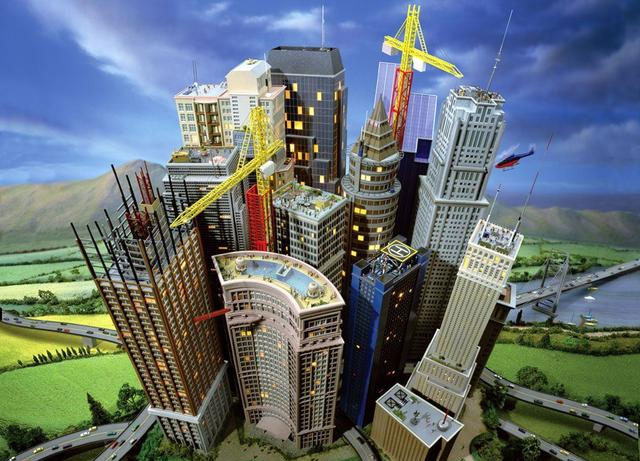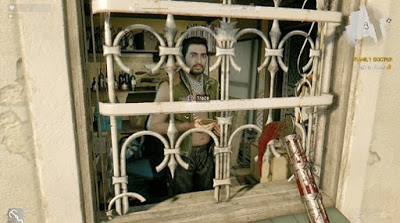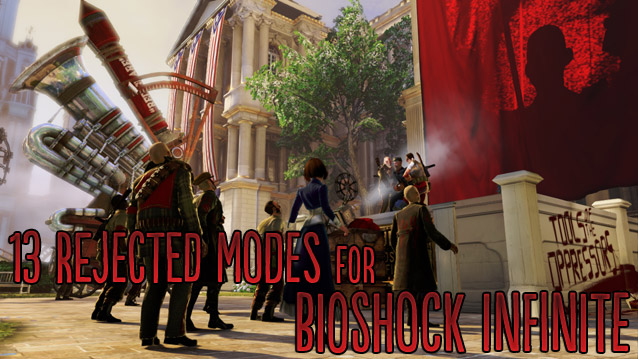


What should we look for in SimCity 5? I don't about you, but I spent my childhood playing SimCity 2000 and humming along to that catchy "do-do-doodoo-do-ba-ba-da badaba" tune while reticulating splines, so I hope that puts me in a position of knowing a thing or two about city simulations. After looking at previous city building games, I've noticed a lot of what EA—since they bought out Maxis—could do.
The most important thing they can do is to be better than their competition. Not just better, but leagues beyond—the space shuttle compared to everyone else's paper airplane.
Maxis used to be the only company in town capable of creating city simulators. However, that is long past, and other companies have stepped up to the plate. Maxis started the whole she-bang, and they must prove to us that not only do they still have what it takes, but that they can continue to be, not just a leader in the simulation market.
One way to do that is to give players options. In SimCity 2000, you had the option of changing your tileset or even drawing one up yourself using the game's included Urban Renewal Kit. Of course, it was much easier to paint tilesets in the days of 16-bit sprites, but I don't see why it can't be done now given the loyalty and untapped talent of the fanbase.
Maxis should use the modding community that they cultivated with SimCity 4, as well as The Sims franchise, and bring them into Sim City 5. The studio ought to let players actually create buildings. Additionally, the developers should do what they can to make modding as accessible as possible, through the inclusion of first-party tools and a support platform to allow players to distribute their own creations. Indeed, it should be easy for players to distribute neighborhoods and cities of their design.
Terraforming tools and geographic options should be no less flexible. Allow players to create ponds, rivers, lakes, and a variety of other geographic features. Diversity among plant species and biomes should be made an option, down to the planting of individual plants for would be horticulturalists. Allow people to build in all kinds of climates and even letting the climates affect the cities—Miami doesn't need snowplows, but Fargo sure does. Include even geology into the mix with frequent earthquakes near fault lines.
The developers needn't stop there—player imaginations should be allowed to run wild. Let people decide between an Earth-like planet and a completely alien one to build on. It is arguable that incorporation SimEarth into the game's design would be too much, but letting people pick between a familiar area to let them rebuild San Francisco or a completely new region would certainly allow for more creativity.
In SimCity Societies, you could pick the flavor of your city—some funny and some more serious and dark. Most of this could be settled between different tilesets and written content, so such features shouldn't be too difficult to recreate in SimCity 5, so long as the developer doesn't reproduce the "casual" nature of SimCity Societies.
The more work it takes for someone to build a city, the more joy it brings to a mayor that in a sudden change of mind decides to turn his or her city into a black spidery alien playground and parking lot.
Speaking of disasters, they should wow us and make us laugh. For instance, it would be really cool if the effect of putting too many polluting power plants resulted in a horde of angry mutants besieging the city, instead of mere anger from the local populace. Such features could, of course, be completely optional. Random events are good—they keep people on their toes.
Actions should have consequences, and a thoughtless mayor should face disaster. A good mayor would do all he or she could to avoid them. This could serve as a challenge to players, in addition to the other logistical nightmares one faces. The game should allow for some warning, as something that experienced players can keep track of but something that a new player might stumble upon as a surprise. Always put in an edge of uncertainty, so they aren't completely predictable.
Something else that would keep people playing for a long time is the ability to earn things. It goes without saying that the developers should allow for a Sandbox-type game mode where everything is served to the player at once of course, but in the main one—and in whatever campaigns there may be—developers could allow for players to unlock special buildings and earn a variety of doodads.
For instance, players could construct a city in the 1850s, and must build schools in order to learn new things to unlock the knowledge of constructing asphalt roads or subways, power lines and water treatment plants. The same could apply for new industries and entertainment buildings as well.
Compounding on certain unlocks offered by SimCity 4, the game could allow for players to start in the present and accrue a certain amount of revenue before unlocking a giant statue or some other mega structure.
That said, some liberties must be allowed for, as we can't go too far back into the past or the game will end up being far too large. Expansion packs and DLCs would probably be the way to go—though I'd hate to see the game turn into a cash cow.
Stability would be paramount in a sandbox game like SimCity 5. Given the amount of effort that each player puts into the city (or cities) they develop, crashing is like someone kicking your sandcastle over. The developer has to take care not to release a buggy game and patch it later, especially if it affects preexisting cities. It goes without saying that downloading a patch and installing it takes time—time away from the game you just paid for.
Stability is something that everyone asks for in games, and these days, it seems as though developers can just slap a patch on it if something doesn't work right. Perhaps it's the fault of the publishers, but whatever the cause is, it can't happen here. The fact that it is a sandbox game itself demands stability. An autosave feature can tide over some ill feelings over bugs, but in the end, stability matters—especially if there is any hope in bringing in the casual consumer.
The Sims was an example of this. Too many bugs only annoyed consumers. Though sales didn't appear to be affected by this, the game is still known for being poorly made. Something as complicated as this game is likely to be, it's going to be frustrating enough if people aren't careful in designing the game—no need to make it worse with unnecessary crashes and bugs. To release an unfinished game gives it an unnecessary tarnished name.
Nostalgia isn't something the developers can easily dismiss. For the series' older fan base, allowing them to rekindle old memories something to consider—like that giant alien spider thing, Godzilla from the first SimCity game, or even that old reticulating splines joke. EA did a fantastic job in using that same old humor Maxis fans all love in The Sims 3. Something I think people would really love, would be to use remixed versions of old music, or new and improved copies of previous building designs. It really hits the right chords in the heart to let yourself be a kid again because all the old "friends" are back.
Everyone who grew up playing all the old sim games is an adult now, and is likely to have children of their own. Something that could bridge a gap between the generations would put this game at the top of our lists.
Developers should not only learn from their mistakes but improve on old concepts, but if something works, don't fix it. That said, the game's focus should be on the City itself—feature creep be damned. We don't need the game to focus on families, neighborhoods or even states. Cities alone will do.
Finally, if the game is built with love, it would be impossible not to love it in return.




 9 Camera Deals You Can Take Home Right Now
9 Camera Deals You Can Take Home Right Now Sniper Assassin 3 Walkthrough
Sniper Assassin 3 Walkthrough The Walking Dead — Episode Two: Starved For Help Walkthrough
The Walking Dead — Episode Two: Starved For Help Walkthrough 13 Rejected Modes for Bioshock Infinite
13 Rejected Modes for Bioshock Infinite How to get a Chicken Hat in MGS V: The Phantom Pain
How to get a Chicken Hat in MGS V: The Phantom Pain